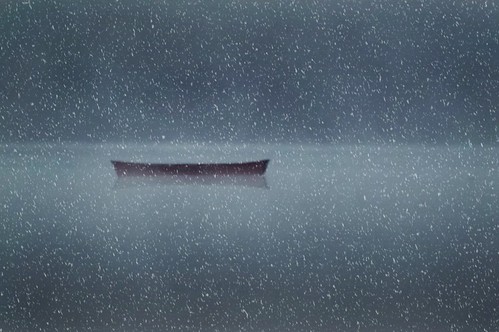
monophobia · /mah-nuh-FOE-bee-uh/ · /mɒnəʊˈfəʊbɪə/. noun. A severe, even morbid fear of being alone. Also, a generic term for a single, simple or specific phobia. From Greek mono- (alone, single, sole, only) + -phobia (a fear of, or aversion to, something). See also: eremophobia, isolophobia.
“The fear of solitude, monophobia, manifests itself frequently in hysteria, in neurasthenia.” (Ch. Féré)
“If he is afraid of being alone he knows that he has monophobia and has the satisfaction of knowing that he is a pathological case. If he keeps worrying, in the middle of a meal, about the possibility of being buried alive, he can flatter himself that he has taphephobia, and that it is no worse than a bad cold.” (Robert Benchley)
“…for a while I thought I would inherit my father’s lavish array of phobias: aerophobia (he flew once, as a child: a five-shilling ‘flip’ at the seaside. That did it), acrophobia (when he took his children to the top floor of the Empire State, in 1959, it was only our presence, he said, that stopped him from screaming), and nyctophobia, or fear of the night.* Nyctophobia overlapped with partial monophobia. There were many things he couldn’t do alone.” (Martin Amis)
“New siblings to rival. Perhaps for a moment, only a moment, this affront will being us together, all human, all much more alike than different, all much more alike than is good for our prickly pride. Humanity, E pluribus unum at last, a oneness focused on and fertilized by certain knowledge of alien others. What will be born of that brief, strange, and ironic union?” (Octavia Butler, from “The Monophobic Response”)



